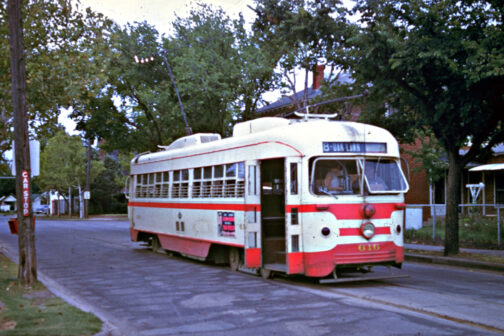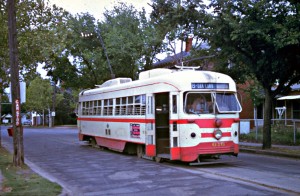Dallas Morning News contributing writer Clayton McCleskey doesn’t think much of DART’s plans for an Oak Cliff streetcar. He’s all for streetcars; he just believes this $35 million effort is doomed to fail because 1) The streetcar won’t run often enough and 2) It won’t take passengers far enough into Oak Cliff, and won’t reach the Bishop Arts District.
In writing about it, he concludes: Â “I want to coin the phrase, ‘Pull a Dallas,’ to use when someone tries so hard, yet royally misses the mark.”
Who doesn’t have “coining a phrase” on his or her list of desired lifetime achievements? McCleskey’s attempt is a solid effort, but we all know there are others hoping to seize “pull a Dallas” as their own. A quick online search reveals the top competitors:
1. pull a Dallas –Â To achieve success much more quickly than anticipated. As when the Dallas Mavericks went from having a win-loss record so bad that they were a lottery team one season to improving so much the next that they reached the second round of the playoffs. (January 2002)
2. pull a Dallas – To have an entire year of storylines turn out to be a dream. As with Bobby Ewing’s famed return to the TV series Dallas. Though primarily television or fiction-related, this could perhaps be expanded to mean a prolonged period of self-delusion. (Multiple instances, including June 2007)
3. pull a Dallas – To shudder and/or shake when you get turned on. It’s in Urban Dictionary, so it must be true. I’d like to know more of the etymology of this definition. (April 2008)
4. pull a Dallas – To choke. To be perceived as a champion but to fail in the face of competition. As when the Dallas Cowboys were the No. 1 NFC playoff seed but collapsed against Eli Manning and the New York Giants. (January 2009)
5. Pull a Dallas – To try hard, but royally miss the mark. As (possibly) with the Oak Cliff streetcar, or the Trinity River Project, or that “Find Your D-Spot” slogan that the Downtown Dallas association embraced a few years back. I’m sure others might be cited. McCleskey’s take. (July 2011)
Given the options, I’m liking the broader meaning of No. 2 best. And its connection to an internationally known television program gives it extra stickiness.






